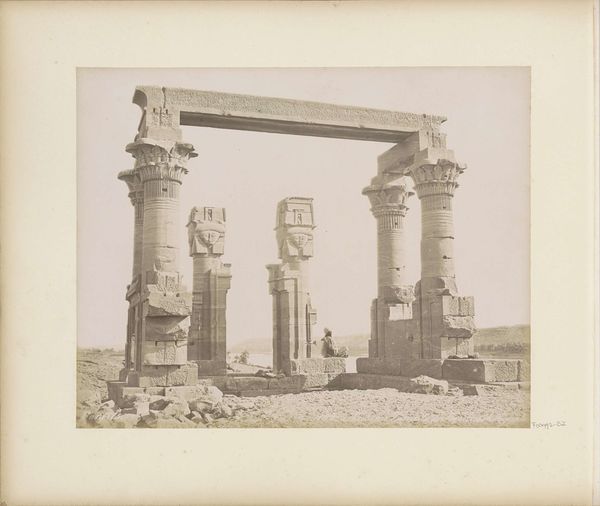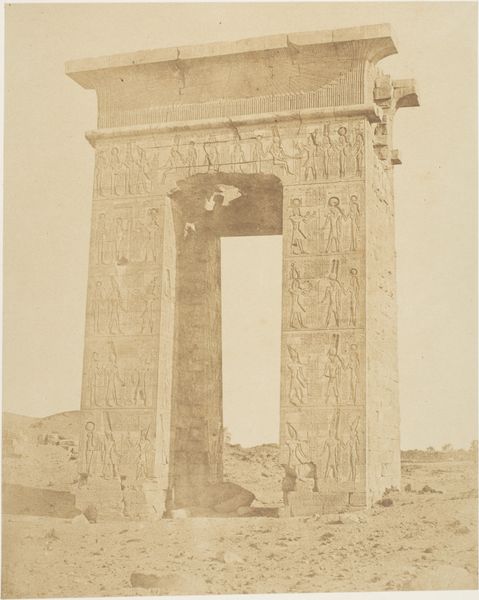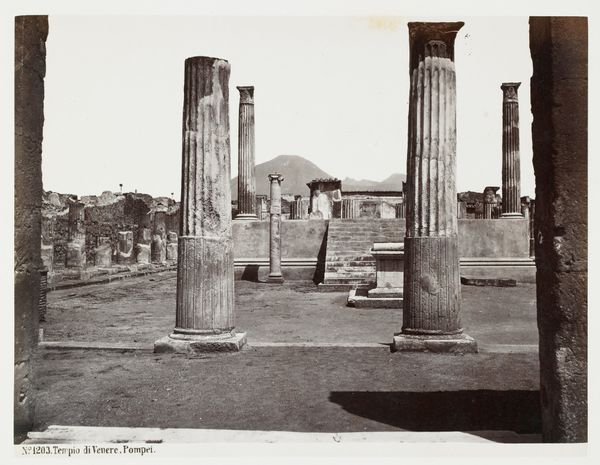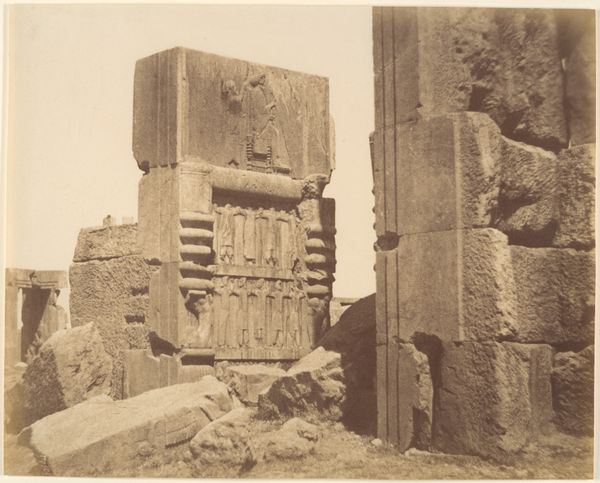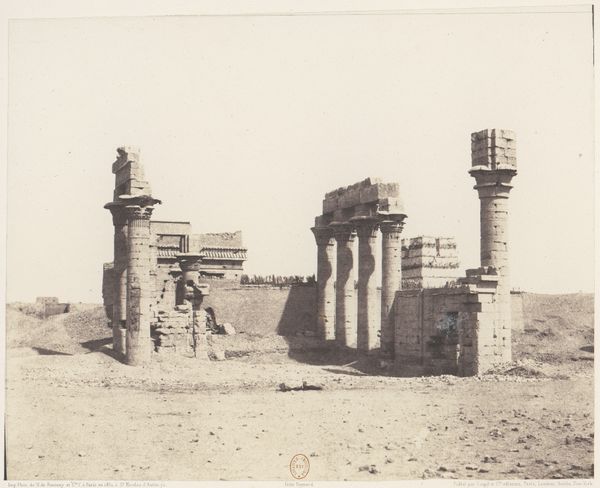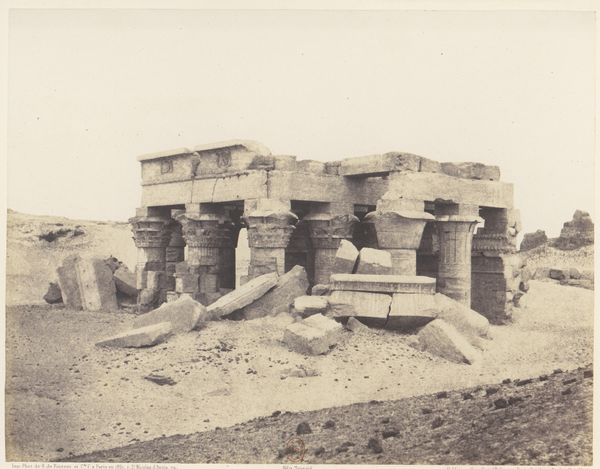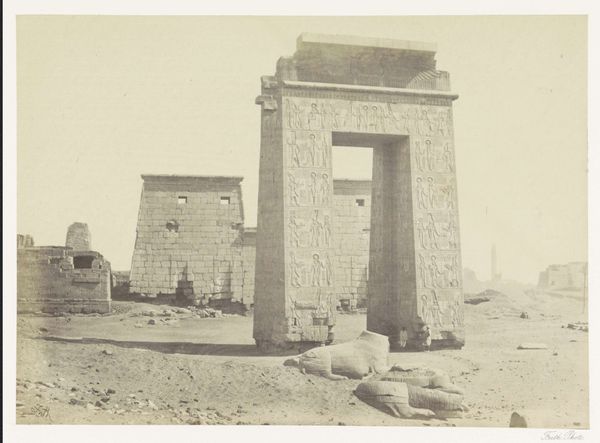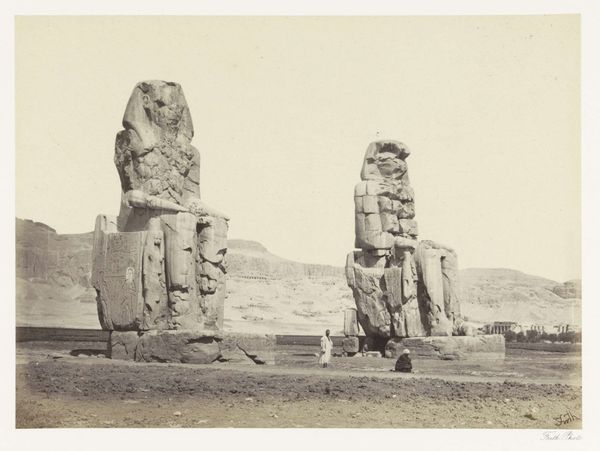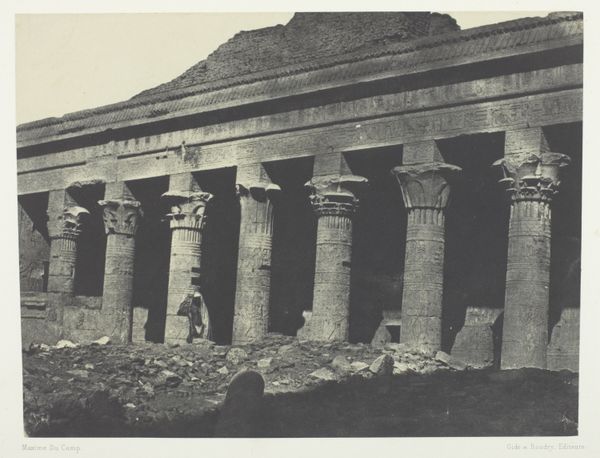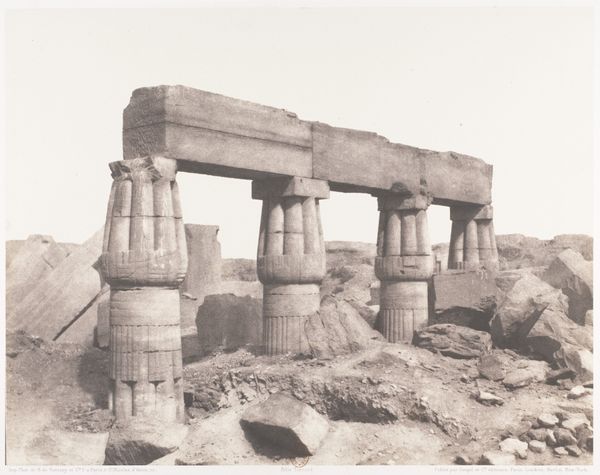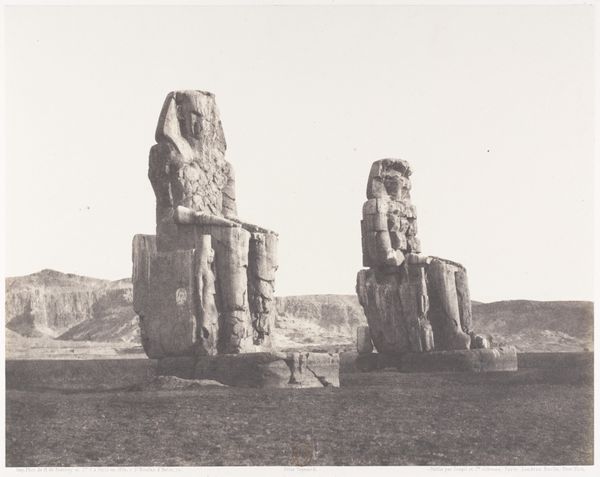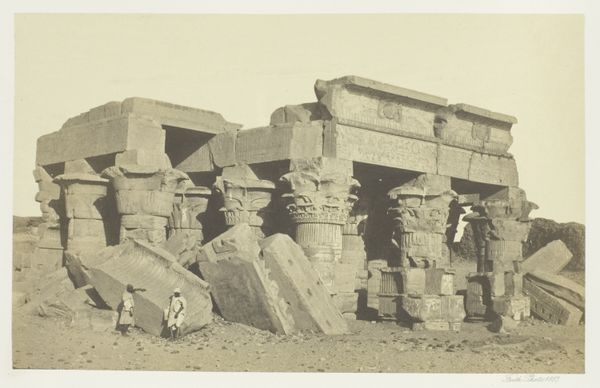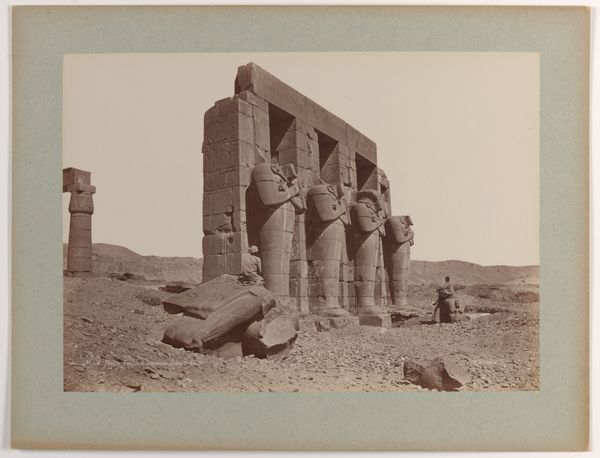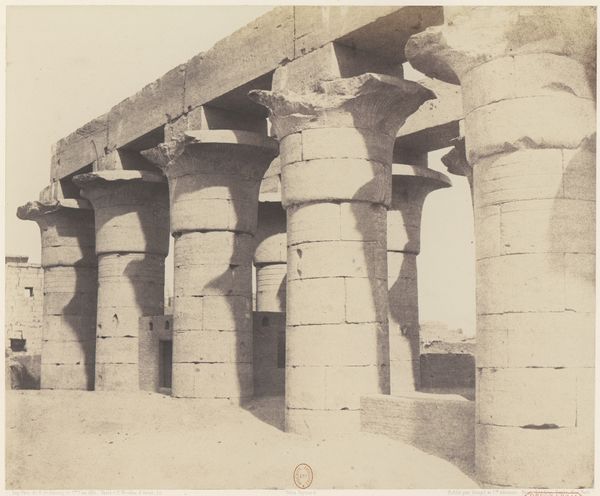
print, paper, photography, gelatin-silver-print
#
print photography
#
16_19th-century
# print
#
war
#
landscape
#
ancient-egyptian-art
#
outdoor photograph
#
outdoor photo
#
paper
#
photography
#
egypt
#
ancient-mediterranean
#
gelatin-silver-print
#
history-painting
Dimensions: 16.3 × 21.7 cm (image/paper); 30 × 42.9 cm (album page)
Copyright: Public Domain
This photograph of the Temple de Kardassy in Nubia was created by Maxime Du Camp, who was commissioned by the French government to document historical sites in Egypt and the Near East. As one of the earliest photographers in the region, Du Camp was working within the context of 19th-century European colonialism. His images reflect the power dynamics inherent in this encounter. The ruins of the temple, depicted through Du Camp's lens, become a symbol of a past civilization, implicitly inviting a Western audience to see itself as the inheritor and interpreter of this history. What does it mean to look at the Temple de Kardassy through Du Camp’s eyes, knowing that his gaze was shaped by the assumptions and ambitions of his time? How do the photographer's choices – composition, lighting, and framing – affect our understanding of this place? The Temple de Kardassy is not only a documentation of a place, but also a mirror reflecting the complex relationship between the West and the Middle East.
Comments
No comments
Be the first to comment and join the conversation on the ultimate creative platform.
